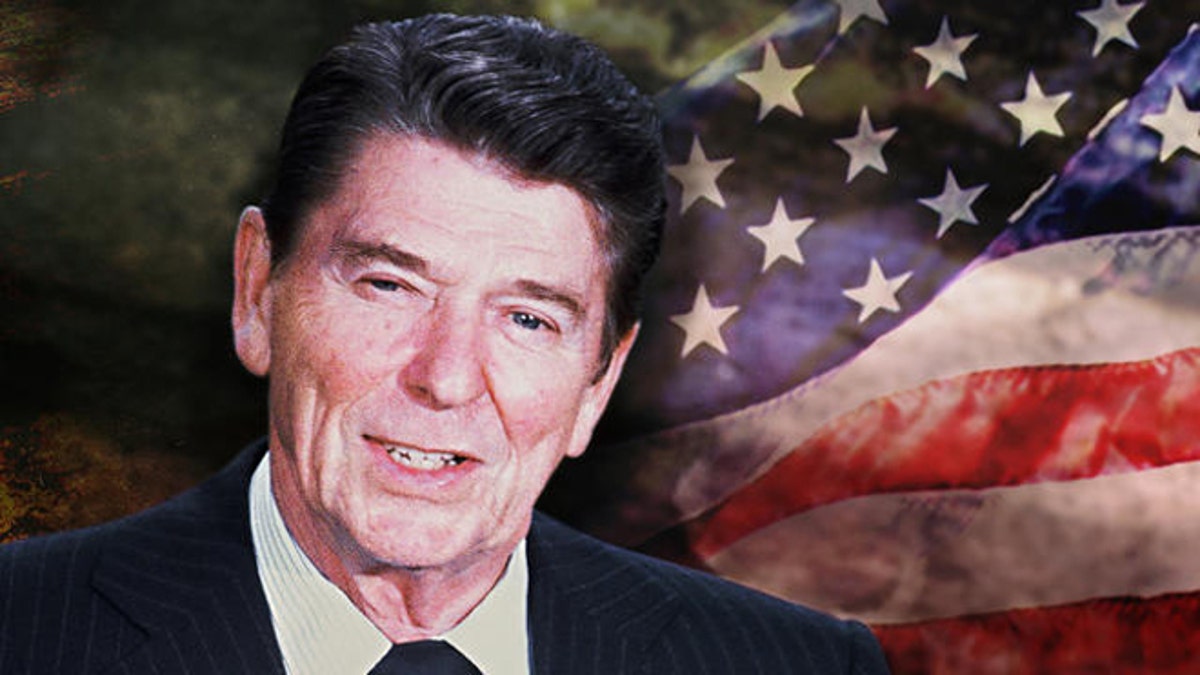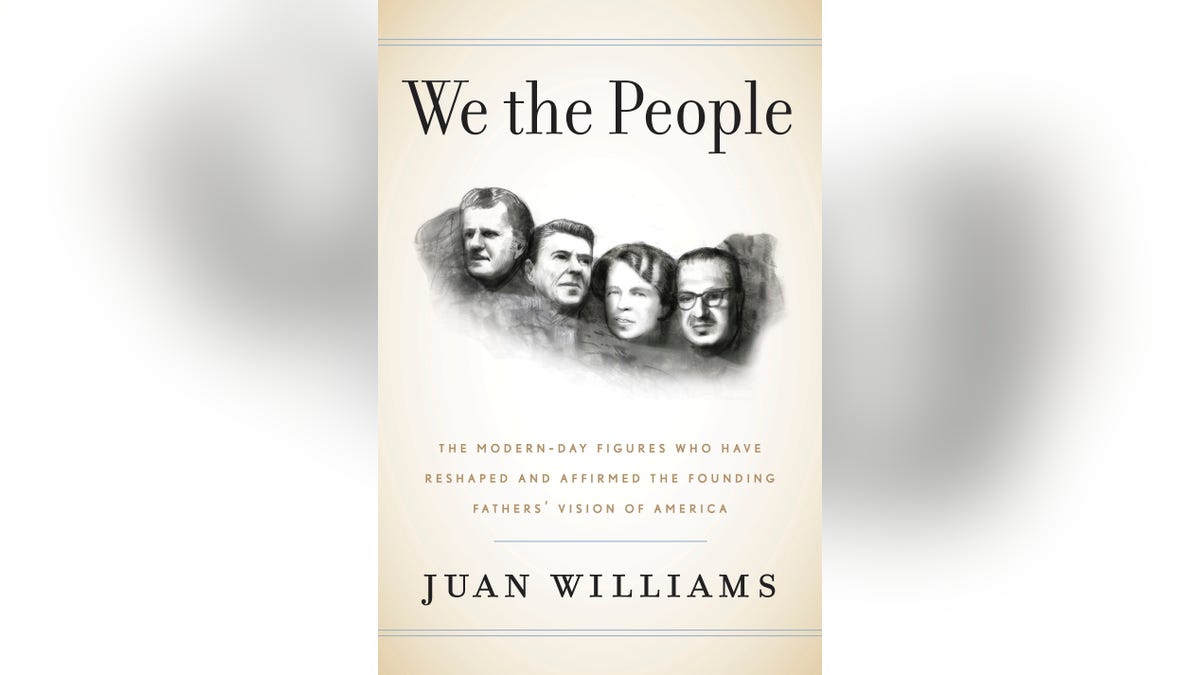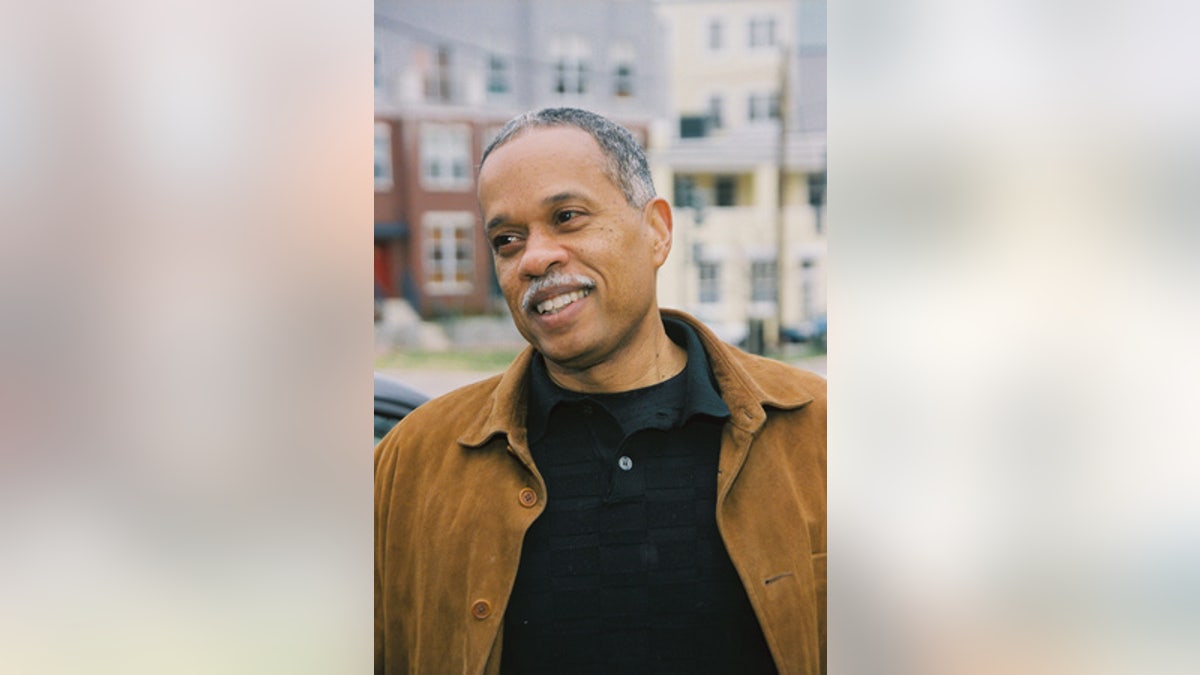
President Ronald Reagan (AP)
Editor's note: The following column is excerpted from Juan Williams' new book, "We the People: The Modern-Day Figures Who Have Reshaped and Affirmed the Founding Fathers' Vision of America." (Crown, April 5, 2016).
America is best, President Ronald Reagan often said, when it gets back to basics, back to the Founders’ vision, back to their original constitutional framework.
In one of Reagan’s most famous speeches, given in 1964 in support of GOP presidential candidate Barry Goldwater, he asked Americans if “we still know the freedoms that were intended for us by the Founding Fathers.” He asked if today’s citizens wanted to “abandon the American revolution” and the Founding Fathers by giving power to control life to “a little intellectual elite in a far-distant capitol” who say they “can plan our lives for us better than we can plan them ourselves.”

The most concrete expression of Reagan’s belief in the Founding Fathers was his opposition to “activist” federal judges who moved away from “constitutional vigor,” a strict application of the law as written in the Constitution.
Like President Jefferson, President Reagan wanted to limit the powers of the courts by having judges strictly adhere to the exact language of the Constitution. Jefferson even started a political party based, in part, on calls to limit U.S. courts to issuing decisions only within a strict interpretation of the Constitution.
President Reagan frequently called out the names of several of the original Founding Fathers to rally patriotic feelings. He spoke of their willingness to fight a revolution to declare their independence of big government control.
As a reporter, I saw him bring audiences nationwide to their feet when he spoke about the Founders’ belief in America’s exceptional role as a “shining city on a hill,” with fiercely protected individual rights set in stone by the Constitution.
The day before he won the presidential election in 1980 Reagan made two major pledges to his supporters: to cut taxes, and to return America to “the standards of decency and excellence envisioned by the Founding Fathers.”

So it was no surprise to me when President Reagan alluded to the Founding Fathers near the start of an exclusive 1984 interview with me and two other journalists, saying he felt a “growing hunger in our land for what I called a spiritual revival . . . people with a belief in themselves and in our country, a belief in our institutions.”
At the end of the interview I tried to push the president off his well-practiced answers to political questions by presenting him with a question that would have made no sense to the original Founding Fathers. I asked him if there was any role for the federal government “to bring about equality between the races.”
The Founding Fathers had no concept of the federal government playing a role in limiting racial discrimination, because blacks in Colonial times were slaves.
The Supreme Court, in the 1896 case Plessy v. Ferguson, ruled that the Constitution allowed for “separate but equal” treatment of blacks and whites. They found nothing in the Constitution to stop the government from treating blacks differently than whites, even as an inferior class of citizens.
The Founding Fathers knew nothing about the Thirteenth Amendment (ending slavery), the Fourteenth Amendment (giving equal rights to all citizens, including blacks), or the Fifteenth Amendment (giving black men the right to vote). They had no idea about the civil rights laws of the 1960s.
President Reagan pushed right back at me, the smile on his face indicating that he welcomed the question. He said he’d lived longer than me and that he “sometimes wonder[ed] if some of you who are younger realize how far we have come, how totally different this country is than what it was then.” He reminded me that when he was a sportscaster “blacks were not allowed to play in any of those games.” One glance at sports on television today, he said, shows that “it’s all been changed.”
He went on to say it was impossible to “ever totally erase, anyplace in the world among human beings, bigotry and prejudice.” So people, he said, without mentioning any role for government, have to “be alert” that “we don’t fall back into any of the other patterns.”
I pushed the president one more time, raising a question aimed at his tax cuts for corporations and the wealthy. Critics derided his policy as “trickle-down economics.” I wanted to know what he might say about whether his economic policy was hurting young black women, one of the poorest groups of citizens in America. The question went beyond tax policy because President Reagan wanted private business to have the freedom to hire the best people without fear of government oversight based on racial or gender equality.
Here is how I put the question: If “Ronald Reagan was a young black woman, in Dixon, Illinois, today [where Reagan grew up], trying to make it in America . . . do you think that young black woman would prosper” under the president’s tax and economic policies?
Reagan did not miss a beat. He responded: “Much of what we’ve done in our economic recovery has been more beneficial at the bottom of the economic ladder.” Then he told me a story about a black woman in Chicago, just ninety miles from Dixon, who “today runs a tremendously successful multimillion-dollar advertising agency.” He said reduced taxes led to lower unemployment for all, and childcare tax deductions helped working women. “I think there is greater opportunity for young people today in the country than there’s been for a long, long time,” he said, referring to an earlier time, before the New Deal and the beginnings of big government, when low taxes and a small federal government gave Americans wide latitude to pursue life, liberty, and happiness.
Two hundred years of changing realities in the nation did not deter the president from his conviction that the greatest opportunity for all Americans, at all times, is achieved when the government goes back to basics, beginning with limiting itself to its constitutional responsibilities. The “Reagan Revolution” brought conservative values and politics to new heights in American life—from cracking down on federal spending to opposition to unions and abortion rights.
But the most enduring and divisive element of the Reagan Revolution has proved to be his imprint on the federal judiciary. President Reagan’s attachment to the Constitution was most evident in his selection of judges. He successfully changed the direction of legal thinking with his emphasis on judges who stuck closely to the Constitution. He wanted his Justice Department to limit its law enforcement powers to the explicit dictates of the Constitution. He wanted federal agencies limited in their regulation of business.
This oped was adapted from "WE THE PEOPLE: The Modern-Day Figures Who Have Reshaped and Affirmed the Founding Fathers’ Vision of America" Copyright © 2016 by Juan Williams. To be published by the Crown Publishing Group, a division of Penguin Random House LLC, on April 5.
